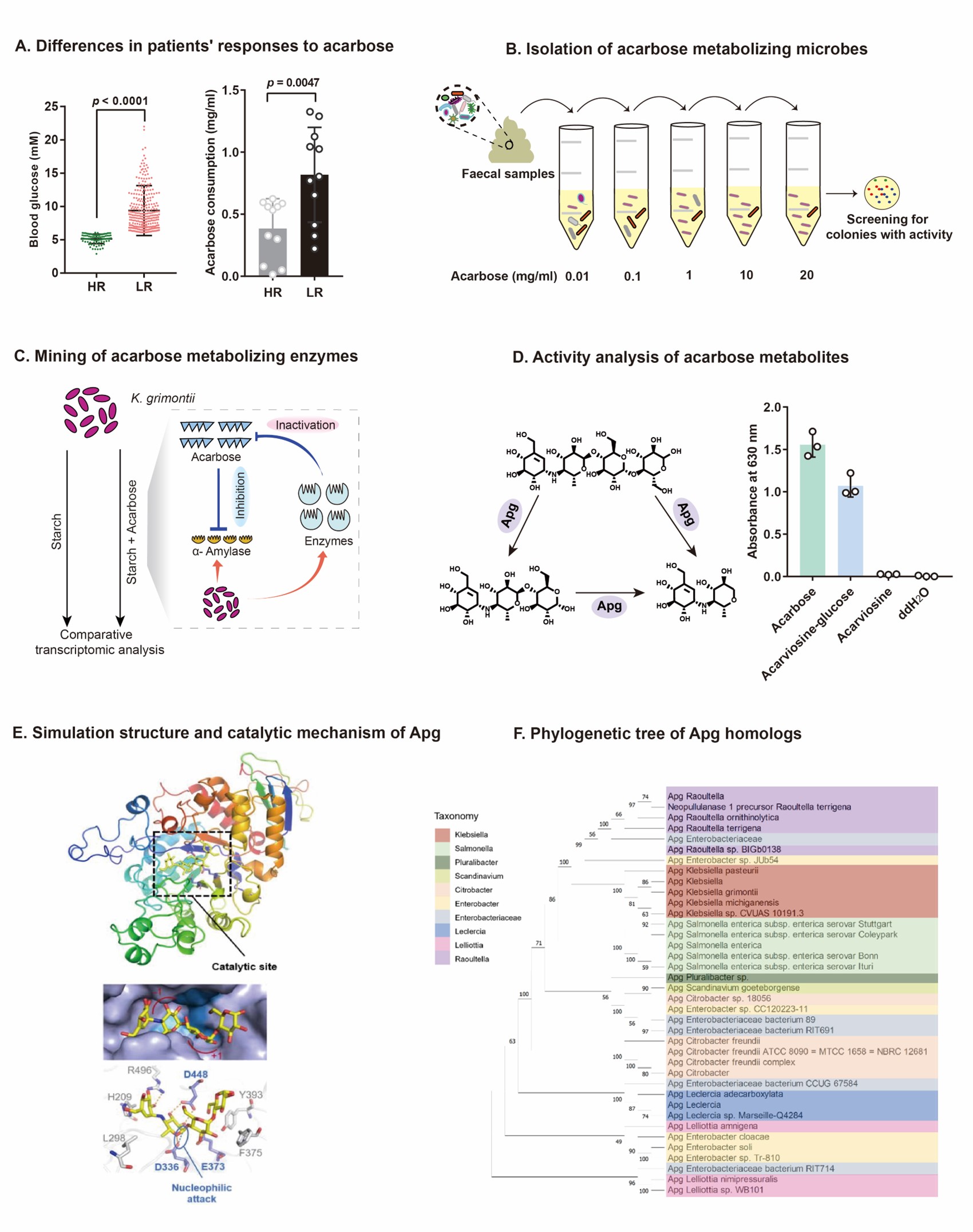Inactivation of the Antidiabetic Drug Acarbose by Human Intestinal Microbial-mediated Degradation
Gut microbiota plays an important role in drug modification, transformation and degradation, which are factors that need to be considered in personalized therapy. Acarbose, an inhibitor of α-glucosidase, is used as a first-line drug for the treatment of type 2 diabetes; however, its clinical effects vary greatly among individuals, and the underlying mechanisms relating to the contribution of gut microbes remain to be elucidated. There is often a bidirectional interaction between intestinal microbes and ingested drugs, including co-metabolism and modification. Whether some specific gut microbes are enriched following long-term use of acarbose and in turn metabolize or utilize this drug, thus affecting its therapeutic efficacy merits further exploration.
Here, we reported the association between acarbose resistance and enteric bacteria by analyzing clinical samples and anaerobic enrichment culture, and isolated a major acarbose-degrading gut strain, Klebsiella grimontii TD1. Metagenomic analysis of the intestinal microbiome found that the abundance of K. grimontii TD1 was higher in patients with weak acarbose response and increased with longer medication time. In addition, in vivo experiments using a diabetic mouse model showed that this strain significantly weakened the hypoglycemic effect of acarbose. Further, we identified a key acarbose-preferred glucosidase, Apg, in K. grimontii TD1 using a combined approach of induced transcriptome and protein profiling. This enzyme is structurally characteristic, could degrade acarbose into small molecules with loss of inhibitor function, and was widely distributed in intestinal microorganisms, especially in Klebsiella. These results indicate that the risk of acarbose resistance caused by metabolic degradation from intestinal bacteria is widespread in humans, and this "induced degradational inactivation" mechanism may be one of the main causes of non-antibiotic drug resistance.

This work entitled “Inactivation of the antidiabetic drug acarbose by human intestinal microbial-mediated degradation” has been published in Nature Metabolism, May 8, 2023. This work was supported by grants from the National Natural Science Foundation of China.
Contact: Dr. Weihong Jiang, Professor
CAS-Key Laboratory of Synthetic Biology, CAS Center for Excellence in Molecular Plant Sciences, Shanghai Institute of Plant Physiology and Ecology, Chinese Academy of Sciences
